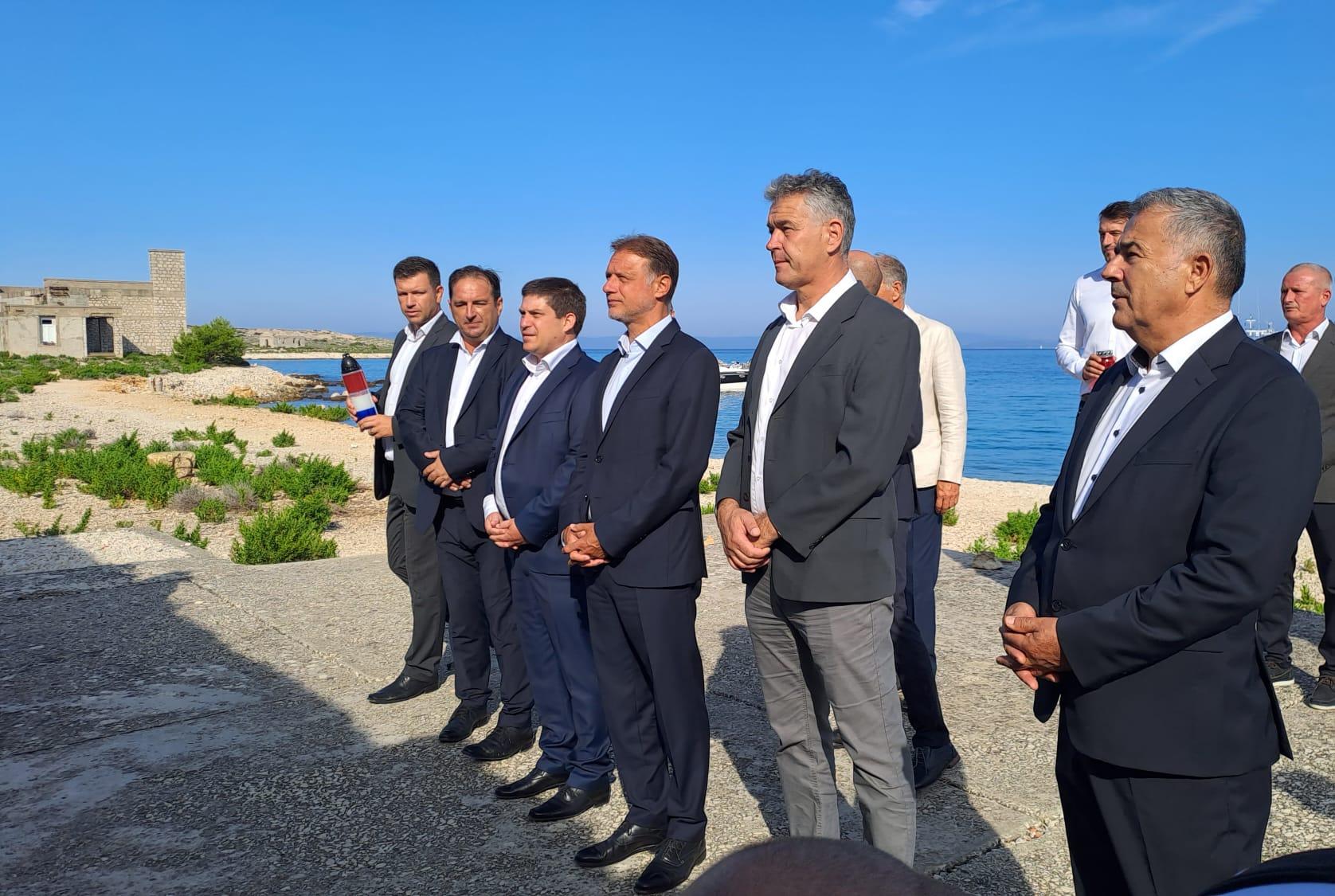
Zagreb - Parliament Speaker Gordan Jandroković and Deputy Prime Minister Oleg Butković laid wreaths and lit candles on Goli Otok and Sveti Grgur islands on Wednesday on the occasion of the European Day of Remembrance for Victims of all Totalitarian and Authoritarian Regimes.
They did so at memorials to the victims of the communist regime killed in the Goli Otok concentration camp and the women's penitentiary on the nearby Sveti Grgur.
Jandroković said they were gathered to mark the day of remembrance and honour all those killed under totalitarian and authoritarian regimes.
The Goli Otok concentration camp and prison was opened in 1949 after an Informbureau resolution, at the time of purges of proponents of Stalinism in the Yugoslav Communist Party. Later on, other political dissidents were imprisoned there, based on administrative decisions rather than verdicts. The camp was known for its brutal conditions, torture and hard labour.
It is estimated that between 17,000 and 32,000 persons were detained there, while the number of those who were killed or died has not been ascertained. The prison was closed in 1956 and was later turned into a juvenile hall, before its closure in 1988.
"This is a European day. In the 20th century, Europe was torn by totalitarianism, both right-wing, fascism and Nazism, and left-wing, Stalinism and communism. Many people were killed, tortured, humiliated. Those were systems which, safeguarding their survival, dealt with political dissidents unscrupulously and brutally," Jandroković said.
Croatia, too, had its historical tragedies, he added. "The Croatian people was a victim of two forms of totalitarianism, the criminal Ustasha NDH during World War II, and then the totalitarian communist Yugoslavia."
"This is one of the places where those people were tortured, treated in the most brutal way, where they lost their dignity, where the system dealt with all those who politically thought or acted differently," he added.
Jandroković recalled the recently deceased Đuro Perica, saying that he was imprisoned for 14 years after a rigged political trial. He fought for human rights and the freedom of the Croatian people, and was therefore brutally persecuted by the former communist state, he added.
It's important for young people to know that democracy, freedom and peace don't come just like that, and that many people died fighting for those ideals, he said. "Young people probably find it difficult to understand that you can be persecuted, killed and tortured for your words, singing a song, political belief, and lose your livelihood, but it did happen."
Politicians, media, intellectuals and the academic community should openly say that today we have freedom, the Croatian state, democracy and the rule of law, but that it wasn't always so, Jandroković said. "Young people should be made aware that there are also those willing to do evil, who maybe even tomorrow will do some things that are not possible in a democracy."
"We are here to remember the victims and send a message for the future, notably to young generations, to safeguard peace, democracy, freedom and our Croatian state," he said.
"A people which forgets its history repeats its tragedies," said Butković, adding that one should not live in the past, but that there are moments when the victims and the innocent who lost their lives should be remembered.
Goli Otok and Sveti Grgur, as two of the most infamous prisons in the former system and state, are places where we pay our respects every year so that something like that does not happen again, he said.
Asked by the press about utilising Goli Otok's past for tourism purposes, Butković said it was said every year that it would be good to do something about it and that tourists, mainly boaters, visit the island, although everything on it is dilapidated.
If someone invests in it, the government will support that, he said, adding that the investment should be big because there is no infrastructure, but that he is not sure anyone would make the investment.